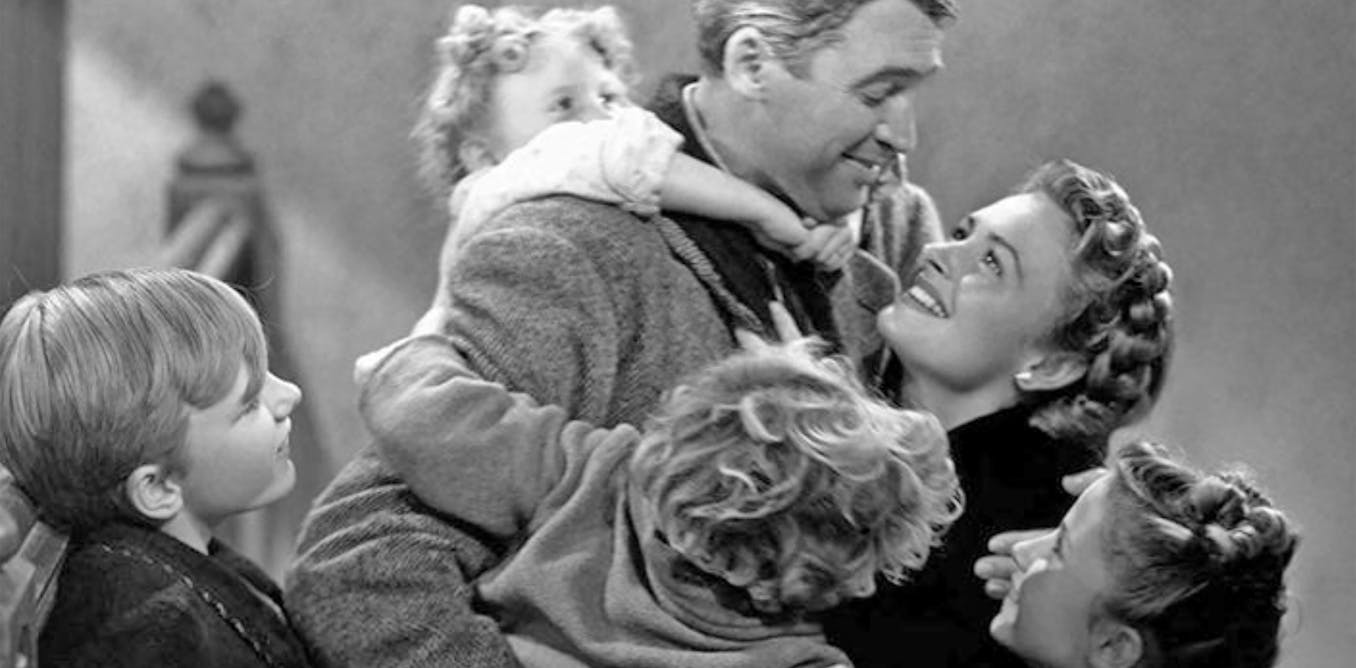Master your anxiety. Unleash your genius | Jesse Eisenberg
In the video titled “Master your anxiety. Unleash your genius | Jesse Eisenberg,” the actor, writer, and director Jesse Eisenberg opens up about his struggles with anxiety and self-doubt and how he has used them as motivation in his career. Eisenberg talks about how negative motivators like fear, self-consciousness, and self-hatred often drive him to excel in his work. He shares his experiences of being a public figure and dealing with criticism, highlighting the importance of creating a bubble to protect his creativity.
Eisenberg also delves into his experience as a director, admitting that he is not a traditional leader but excels at understanding and motivating his team. He emphasizes the value of humility, collaboration, and learning from others in achieving success. Eisenberg shares anecdotes from his directing experience, emphasizing the importance of allowing actors to showcase their talents and not micromanaging their performances.
Through his personal anecdotes and insights, Eisenberg inspires viewers to embrace their anxieties and use them as fuel for creativity and success. He encourages individuals to collaborate, learn from others, and prioritize authenticity and passion in their endeavors. Jesse Eisenberg’s candid and relatable approach to overcoming anxiety and self-doubt serves as a valuable lesson for anyone looking to unleash their inner genius.
Watch the video by Big Think
– When I think about like the kind of motivating factors for me, you know, it’s effort and you know, talent and creativity and all that stuff. But I cannot underestimate how often I’m just driven by anxiety and fear. – You and I are both very self-hating. – A lot of the things that motivate me are like kind of negative motivators, misery, Self-consciousness, I would say self-hatred, and a lot of fear. I worry all the time that my last job is going to be the final one I’ll ever have in my life. But you know, when I meet people in other fields who have kind of forged their own paths, they have the exact same story. And it just occurred to me that this is kind of what like great people are motivated by. They’re amazing at their job, they’re creative, they think outside the box, but they’re also worried that the next time is not going to go well. Once you’re able to kind of reframe that anxiety as fuel, as motivation, as care, you worry less and are motivated more. Hi, my name is Jesse Eisenberg. I’m known as an actor. I also write and direct and I forgot the other thing that I was supposed to say because I was… Sorry. (beep) Hi, I’m Jesse Eisenberg. I’m an actor, writer, and director. And the most recent thing I did was those three things
On a movie called “A Real Pain.” Probably it’s important to dispel the myth that actors are full of themselves and you know, they’re in a movie so they must be so confident all the time. As an actor, I’ve had to cope with like kind of being a public person and all that entails because strangely, I often do kind
Of receive criticism in places that I never expected to receive it. Sometimes people say to me on the street, “Hey, man, I thought you were okay in that movie.” And they say it as like almost an apology and it makes you feel even worse.
You know, you care like anybody else who works on anything, how the thing is going to be received. And sometimes for an actor it’s heightened that much more because it’s being written about everywhere. If you’re somebody with the inclinations that I have towards self-doubt, towards self-criticism, what I have created was essentially kind of a bubble that allows me to work at my best. It sounds strange, but I don’t watch the movies I’ve been in. I don’t read any reviews of movies that I’m in.
I go so far as to not bike past streets that are overflowing with movie advertisements ’cause it makes me self-conscious on my way to work. And I know it sounds a little bit like I’m making my life unusually difficult and I should just confront those things, I should just hold the tarantula in my hands, so to speak, bike past those movie posters. But the truth is I found I am most effective
By not thinking about that stuff, by not becoming obsessed with something that I can’t control. Maybe it comes from a place of fear or weakness, but to me it’s the only way I can kind of self-motivate. I’ve recently started directing. I’ve directed two movies now. Being in this kind of new strange place of like being a manager of people so to speak has not been the easiest transition for me. I realized pretty quickly I am not a great leader in the traditional sense of being able to kind
Of lead a group into battle. My advantage was not so much in talking loudly about the thing we need to get and screaming at people that the sun’s going down, but I am very good at knowing what everybody does and how to kind of get the best from them.
So if you’re somebody who feels like me, somebody who feels like they would not be able to lead an army into battle, try to think of all of the wonderful leaders that you’ve worked for. The best leaders I worked for were really kind of like the quiet, sweet directors who motivated in subtle,
Sweet, quiet, relatable ways. The leaders that you like working for are probably not the kind of bombastic, confident person who’s the loudest in a room. I imagine what you might discover is that the leaders that you really liked working for are probably a lot like you.
How did they do it? How did they excel? I’ve only directed two movies and I’ve interviewed people for various jobs, for production design, for editing, for music composition, for costumes, for cinematography who have done 40 movies in their position. And I’ve done one or two.
Most people I’m working with know 1,000 times more about their jobs than I do. And so it’s important to kind of defer to them and to kind of be humble, be open to learning, and also be able to kind of provide a space for other people to excel.
I am a person who very much wants to collaborate with somebody who has as good or better ideas than I do. I am not somebody who wants to be right, and that has motivated me to find people who are very collaborative. That kind of humility, that kind of eagerness
To learn from others and the eagerness to defer to others has just been a great asset for me. You learn very quickly in acting class that acting, like almost every other collaboration, requires reacting to the other person, to the collaborator’s intention and performing in conjunction with it. The movie I just finished directing,
The two leading characters are played by me and the wonderful actor Kieran Culkin, who’s on “Succession” and is an absolute genius performer in ways that I don’t even know audiences are fully aware of because I got to see him improvise in these incredibly complicated character moments.
And yet it was very often not the thing that I had written and not the thing that I had expected to perform against. So theoretically, I should have all the authority in the world to tell him exactly how I want it to be performed. And I discovered I think on the second day
That that was not going to be effective. That when I kind of try to micromanage his wonderful, lived in, loose performance, it was not helping him. When you’re acting in a scene, you’re supposed to stand on like a little mark so that it makes the lighting look good on your face
And it makes the camera framing for all the other actors appropriate. He wouldn’t stand on marks. And when I asked him to stand on a mark a few times that we did, it would stifle him. He would work so much better when it was loose
And when he was loose, he was so brilliant. When I was thinking about like kind of the priorities of the movie, the first priority of this movie is that this character is loose, alive, and complicated. That is so much more important than having the actor in the exact place.
Sorry, how can I then link this back to something bigger and better? What I’ve discovered is that you really should not try to engineer the other person’s work. You should help them achieve the thing that they do best. And so as a director, I was just enthralled by allowing him to fully live in this role, to be loose, to improvise,
To say what was on his mind. And it made the movie so much better and it made this set just this kind of wonderfully enriching, fun place. Sometimes it might be intimidating to think about collaborating with somebody who might be more successful, more experienced in their field. The first movie I directed starred one of the greatest film actresses of all time, Julianne Moore. And I had never directed a movie before, but I had acted in so many movies
And I know what I wanted from a director. What I love to have as an actor, from my leader, from my boss, from the director, is I love them to really pay attention to what I’m doing and give feedback on that. And when I was directing again this unbearably talented,
Shockingly astonishingly talented woman, Julianne Moore, I was so intimidated to do exactly what I always want directors to do. I think the reason I was probably a little intimidated was because I thought she would see me for the fraud that I must be. And so for the first week,
I kind of like stayed away from her. I didn’t know if she wanted me to give feedback or to ask her to try something in a different way. And finally, when I just like splashed proverbial cold water in my face, I realized, no, that’s exactly what, of course, she wants.
That’s what I would want. That’s what anybody would want. And so I started giving her some notes and we had the most fun. She argued back with me, of course, sometimes when she disagreed, which is totally healthy and wonderful, an important part of the process.
And so what I discovered is being in a kind of position of intimidation with a colleague is not a sustainable place. I think Julianne Moore is more talented than me. I think she’s a better actor than I’ll ever be. I think she’s smarter about stories than me,
But those thoughts were not very helpful. The helpful thoughts were, oh, I have a really funny idea for this scene and this character that she’s playing, and I’m going to tell her what those are now. And that’s like so much more, you know, effective
And such a more fun partnership to have with somebody. Sorry, is that okay? Or did I say okay? Yeah?
Author Video Description
Actor, author, and director Jesse Eisenberg demystifies the role of anxiety and self-doubt in leadership.
Subscribe to Big Think on YouTube ► https://www.youtube.com/channel/UCvQECJukTDE2i6aCoMnS-Vg?sub_confirmation=1
Up next, Adam Grant’s #1 phrase to unlock potential ► https://youtu.be/rJWFxu6k1g4?si=7SAv4Wew_noIykJ2
In a candid exploration of the forces that drive creativity and success, Jesse Eisenberg delves into the paradoxes of the creative process and leadership.
With striking honesty, Eisenberg reveals how anxiety, self-doubt, and fear have been unlikely catalysts in his multifaceted career as an actor, writer, and director. Beyond the glare of Hollywood, he shares personal anecdotes that shed light on the complexities of navigating public perception, criticism, and the relentless pursuit of excellence.
Eisenberg’s journey is a testament to the transformative power of reframing vulnerability as a source of strength, offering profound insights into the art of leadership. Through a lens of empathy and humility, he challenges conventional notions of authority, showcasing how leading with a quiet confidence can inspire innovation and collaboration.
This dialogue invites a deeper understanding of how emotional intelligence and a willingness to embrace the unknown are pivotal in cultivating a culture of creativity and resilience in any field.
———————————————————————————-
Go Deeper with Big Think:
►Become a Big Think Member
Get exclusive access to full interviews, early access to new releases, Big Think merch and more. https://members.bigthink.com/?utm_source=youtube&utm_medium=video&utm_campaign=youtube_description
►Get Big Think+ for Business
Guide, inspire and accelerate leaders at all levels of your company with the biggest minds in business. https://bigthink.com/plus/great-leaders-think-big/?utm_source=youtube&utm_medium=video&utm_campaign=youtube_description
———————————————————————————-
About Jesse Eisenberg:
Jesse Eisenberg is an Academy Award nominated actor and an acclaimed playwright and author.
Eisenberg’s film credits include Roger Dodger, The Squid and the Whale, Adventureland, Zombieland, The Social Network, Now You See Me, The Double, Night Moves, The End of Tour, American Ultra, Louder Than Bombs, Batman v. Superman, Now You See Me 2, Café Society, Justice League, The Hummingbird Project, The Art of Self Defense, Zombieland: Double Tap, Resistance, Vivarium,Wild Indian, Manodrome, and Sasquatch Sunset which sees him play the urban legend Sasquatch.
On the small screen, Eisenberg was recently seen playing the titular character of ‘Toby Fleishman’ in the FX limited series Fleishman Is in Trouble based on Taffy Brodesser-Akner’s best-selling novel of the same name.
Eisenberg made his directorial debut with A24’s When You Finish Saving the World, which premiered at the 2022 Sundance Film Festival to glowing reviews and screened as a part of Critics Week at the 2022 Cannes Film Festival. The film is based on the Audible Original of the same name, both of which were written by Eisenberg.
Eisenberg’s second directorial effort, A Real Pain, recently had its world premiere at the 2024 Sundance Film Festival. The film, which Eisenberg stars alongside Kieran Culkin, tells the story of two estranged cousins who travel to Poland after their grandmother dies to see where she came from and end up joining a Holocaust tour, won Eisenberg the Waldo Salt Screenwriting Award for his screenplay The film was bought at the festival by Searchlight Pictures for a release later in the year.
Eisenberg has written four plays, including “The Spoils,” which had a box-office record-breaking run-on West End. He also wrote and starred alongside Vanessa Redgrave in his play “The Revisionist,” and “Asuncion.” His play, “Happy Talk” starring Susan Sarandon and Marin Ireland opened April 2019 at the Signature Theater in New York.
Born in New York, Eisenberg is a frequent contributor to The New Yorker, the author of the collection, Bream Gives Me Hiccups from Grove Press and the Audible Original When You Finish Saving the World, which won “Best Original Work” at the 2021 Audie Awards.
About Big Think
Big Think is the leading source of expert-driven, actionable, educational content — with thousands of videos, featuring experts ranging from Bill Clinton to Bill Nye, we help you get smarter, faster. Get actionable lessons from the world’s greatest thinkers & doers. Our experts are either disrupting or leading their respective fields.
Video “Master your anxiety. Unleash your genius | Jesse Eisenberg” was uploaded on 02/21/2024 to Youtube Channel Big Think

































